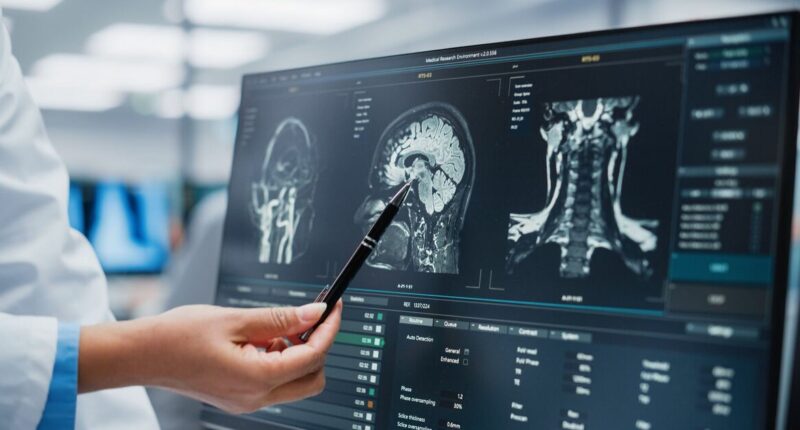Share this @internewscast.com
Receiving a brain tumour diagnosis is among the most daunting news one can face. This form of cancer stands out as not only one of the most challenging to prevent but also among the deadliest in the UK.
Since the 1980s, the incidence of brain tumours has surged, with various factors like mobile phone usage and artificial sweeteners at times being held responsible for their rise.
While research continues, often yielding mixed results, Cancer Research UK notes that 3% of brain tumour cases in the UK can be prevented.
According to The Brain Tumour Charity, certain risk factors are well-documented, such as exposure to radiation during procedures like X-rays and CT scans.
The charity also reviews other potential risk factors that have been subjects of study over the years, including the effects of mobile phones, obesity, and other medical conditions.
They clarify: “Non-ionising radiation, like that from mobile phones and power lines, has less energy compared to ionising radiation used in X-ray and radiotherapy, thus it cannot alter our cells in the same manner.”
“You may have read articles about mobiles or power lines causing brain tumours, but research remains inconclusive and, at present, there is no clear link between exposure to mobile phones or power lines and brain tumours.
“In 2011, a large study by the International Agency for Research on Cancer (IARC) found no increase in risk of glioma or meningioma (the two most common types of brain tumour) nor acoustic neuroma, for low and moderate phone users.
“There were suggestions of an increased risk of glioma and acoustic neuroma for the very heaviest mobile phone users, but problems with the design of the study meant that it was not possible to come to a definite conclusion. Research is still ongoing.”
It adds that having HIV or AIDS increases the risk, including a type of brain tumour called CNS lymphoma.
It also said 2% of brain tumours are thought to be caused by obesity, adding: “There is now evidence that women who are overweight or obese have an increased risk of developing a type of brain tumour called a meningioma.
“There is also some evidence that children born weighing more than 4kg (8lbs 13oz) are at a higher risk of developing types of brain tumours called astrocytoma or embryonal tumours.
“Some studies have shown an increase in the risk of developing certain types of brain tumour. This is because of the following factors:
-
age (people aged 75 years and over)
-
gender (slightly more females develop brain tumours than men)
-
previous cancer (childhood brain and other solid tumours, non-Hodgkin lymphoma, leukaemia, melanoma, thyroid or prostate cancers).”

















